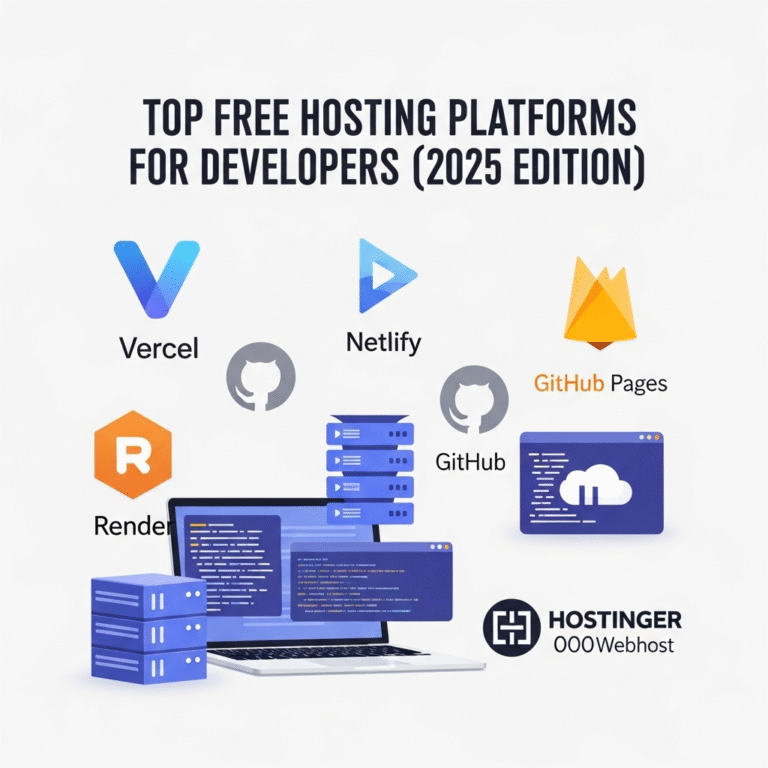
Top Free Hosting Platforms for Developers (2025 Edition)
In today’s fast-paced digital world, developers need reliable and budget-friendly hosting options to deploy, test, and showcase their projects. Whether you’re building personal portfolios, client demos, full-stack apps, or static sites, free hosting platforms can provide powerful tools to get started—without spending a dime.
Below is an updated list of the top free hosting platforms for developers in 2025, covering a variety of use cases including static sites, backend APIs, full-stack apps, and more.
1. Vercel
Best For: Static sites, JAMstack, React, Next.js projects
Highlights:
- Seamless Git integration (GitHub, GitLab, Bitbucket)
- Lightning-fast CDN for global delivery
- Built-in support for frameworks like Next.js, Nuxt, and more
- Free custom domains with HTTPS
- Serverless function support
Why Use It:
Vercel is perfect for front-end developers who want fast deployment and continuous integration. It’s built by the creators of Next.js and offers deep support for it, making it a top choice for React developers.

2. Netlify
Best For: Static sites, Vue.js, Hugo, Gatsby, React apps
Highlights:
- Drag and drop deployment or Git integration
- Free serverless functions and form handling
- Built-in CI/CD pipeline
- Custom domains with HTTPS
- Analytics and edge functions available
Why Use It:
Netlify has been a favorite for frontend developers for years. With automated deployments and an intuitive dashboard, it’s ideal for personal websites, portfolios, or static apps.
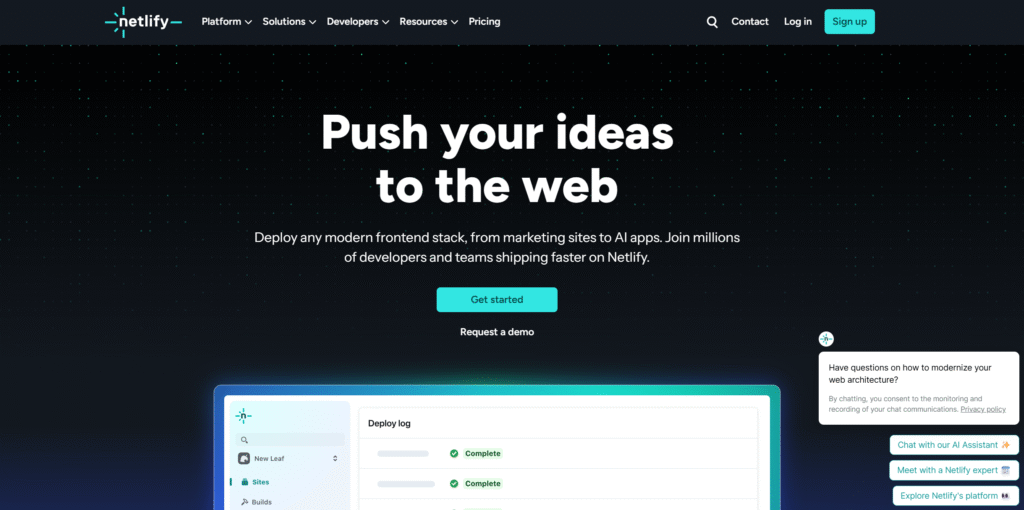
3. GitHub Pages
Best For: Static HTML/CSS/JS sites, Jekyll blogs
Highlights:
- Free hosting via your GitHub repository
- Supports custom domains with HTTPS
- Works perfectly with Jekyll for static blogging
- Unlimited public repositories
Why Use It:
Perfect for beginners or open-source project documentation. If you already use GitHub, publishing a site via GitHub Pages is as simple as pushing code.
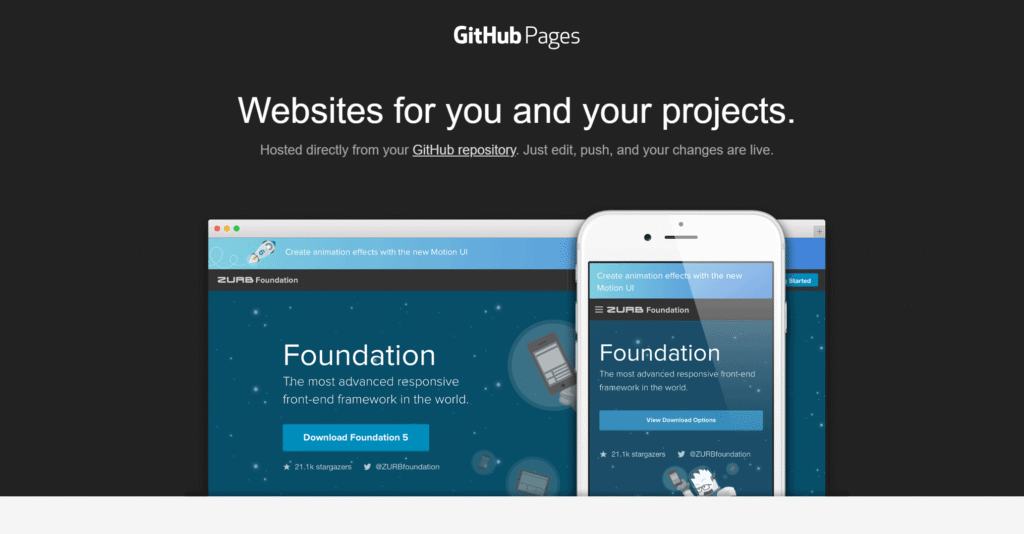
4. Render
Best For: Full-stack apps, APIs, background workers
Highlights:
- Supports static sites, web services, cron jobs, and databases
- Free tier for web services and static sites
- PostgreSQL support
- Easy deployments from Git
Why Use It:
Render is great for hosting full-stack applications. It gives you more backend capabilities than most traditional frontend hosts and is ideal for deploying APIs or microservices.
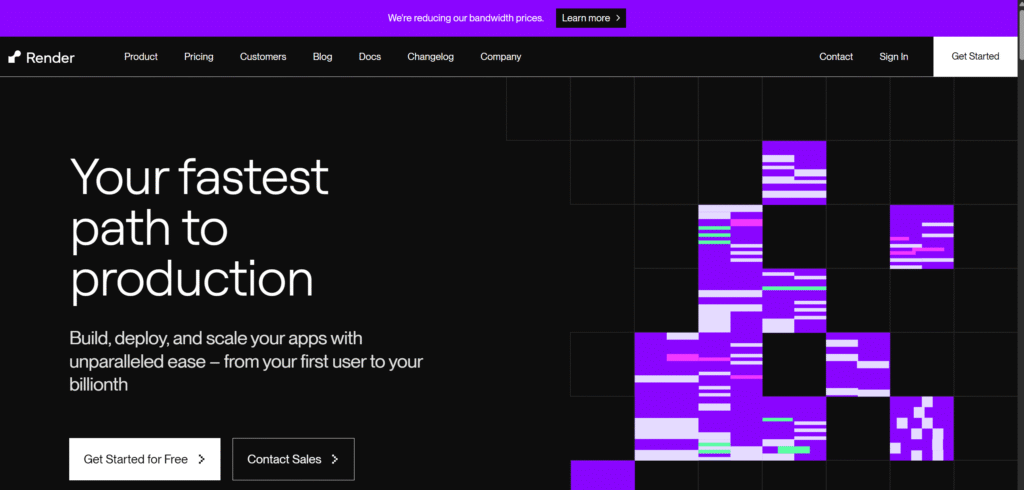
5. Cloudflare Pages
🔗 https://pages.cloudflare.com
Best For: JAMstack apps, static websites
Highlights:
- Built on Cloudflare’s edge network (super fast globally)
- Unlimited requests on the free plan
- Built-in Git integration
- Custom domains with HTTPS
- Zero-config deployment
Why Use It:
Cloudflare Pages is great for performance-focused developers. It also plays nicely with Cloudflare Workers for advanced serverless logic.
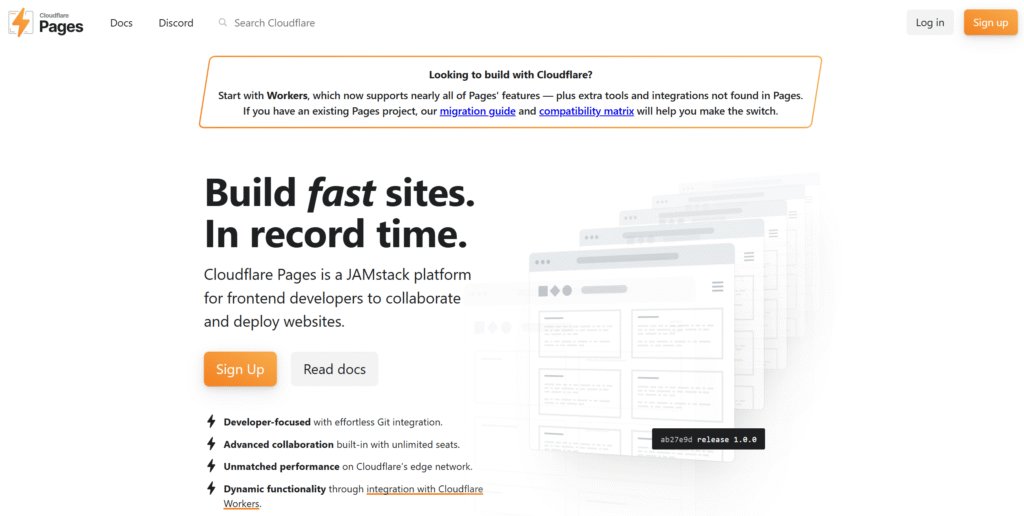
6. Firebase Hosting
🔗 https://firebase.google.com/products/hosting
Best For: Progressive web apps, mobile backends, real-time apps
Highlights:
- Backed by Google infrastructure
- Free tier with generous limits
- One-click rollbacks and previews
- SSL included
- Integrates with Firestore and other Firebase services
Why Use It:
Firebase is excellent for real-time apps or projects that require authentication and database support, especially for mobile developers.
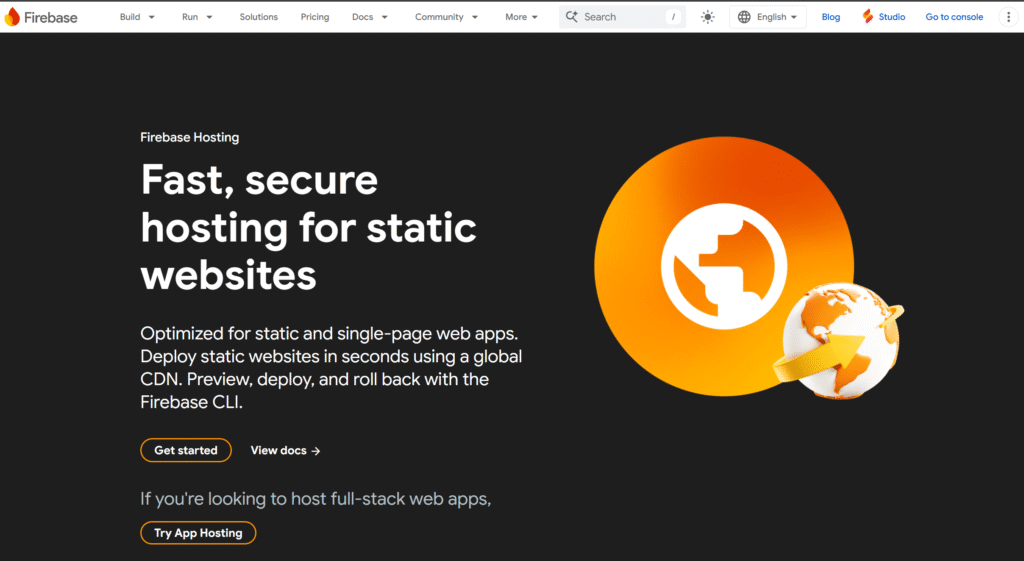
7. Replit
Best For: Instant backend projects, learning environments
Highlights:
- Browser-based IDE + hosting
- Support for 50+ programming languages
- Free static and dynamic hosting (with Replit deployment)
- Community sharing and collaboration features
- Replit Ghostwriter
Why Use It:
Replit is like Google Docs for code. It’s perfect for quickly prototyping or learning new languages, especially for students or hackathon projects.
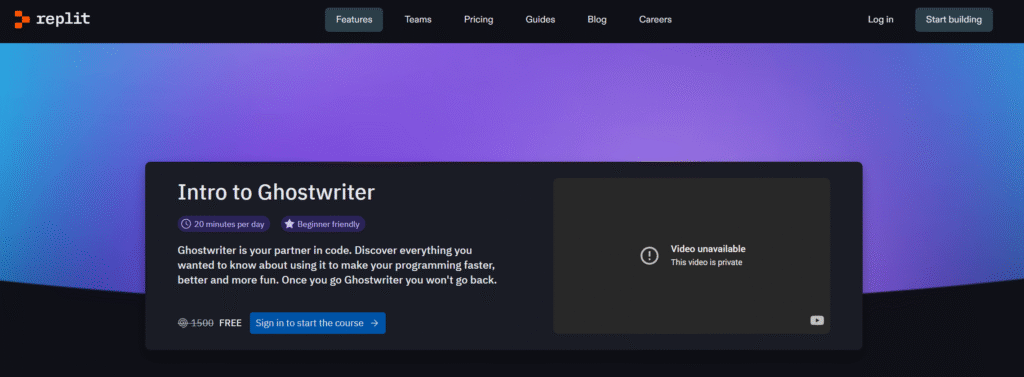
8. Glitch
Best For: Prototyping Node.js apps, small backend services
Highlights:
- Instant remixable templates
- Free Node.js hosting
- Collaborative coding features
- Auto-deployment on code change
Why Use It:
If you’re looking for quick Node.js prototyping or want to experiment with APIs, Glitch provides a friendly and fast way to test your code online.
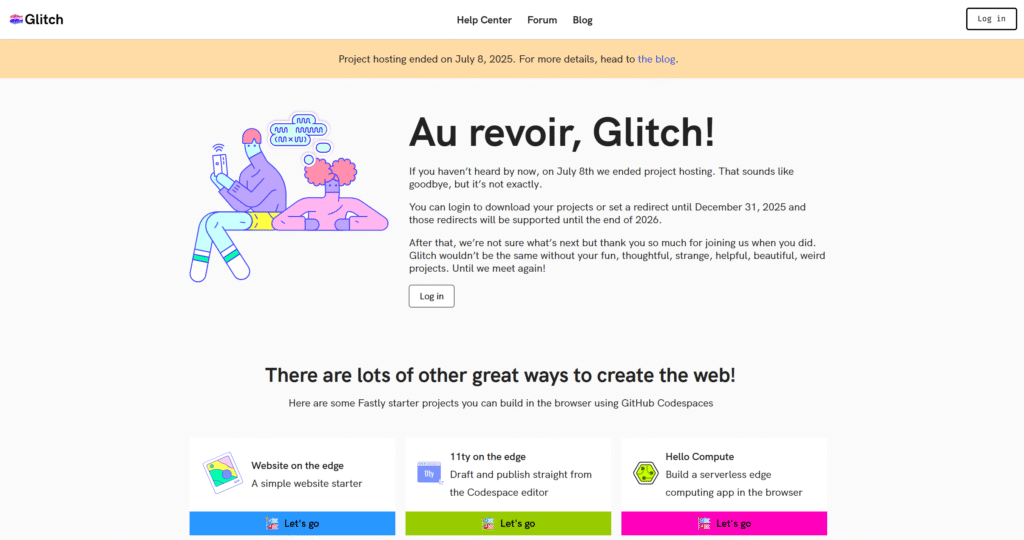
9. Railway
Best For: Full-stack apps, APIs, databases
Highlights:
- Easy GitHub integration
- One-click PostgreSQL
- Auto-deployment from code
- Free tier supports apps with limited usage
Why Use It:
Railway is gaining popularity as a Heroku alternative. It’s ideal for developers who want to deploy backend services and manage databases with minimal setup.
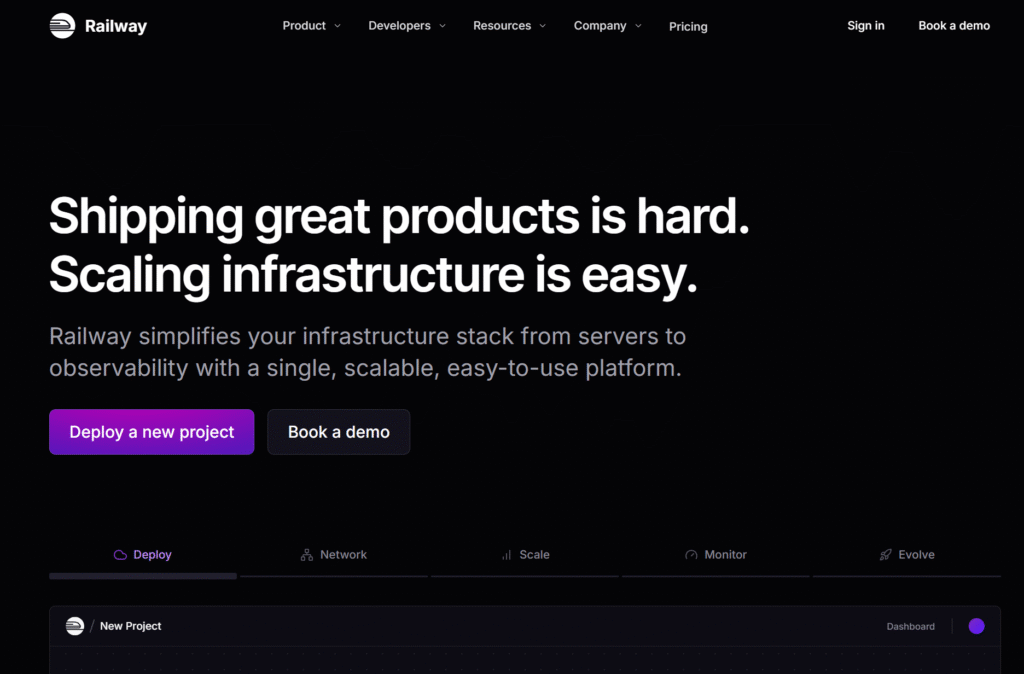
10. InfinityFree
Best For: PHP-based websites, WordPress
Highlights:
- Unlimited disk space and bandwidth (with fair usage)
- Free subdomain or custom domain
- Supports PHP and MySQL
- No forced ads
Why Use It:
For PHP-based websites and those needing WordPress support, InfinityFree offers surprisingly capable free hosting. It’s better suited for small blogs or experiments.
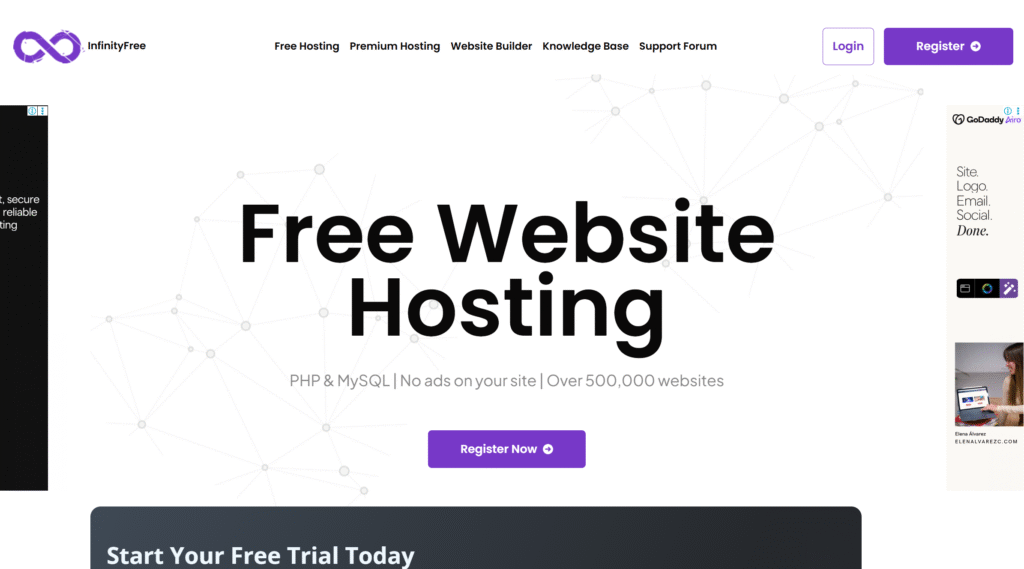
Bonus – Hostinger (via 000webhost)
🔗 https://www.000webhost.com
🔗 https://www.hostinger.com
Best For: Beginners, PHP-based websites, small blogs
Highlights:
- Free plan available through 000webhost (powered by Hostinger)
- 300 MB disk space, 3 GB bandwidth on the free plan
- PHP, MySQL, FTP support
- Easy upgrade to premium Hostinger hosting
- Free subdomain or custom domain support
Why Use It:
While Hostinger is best known for its budget-friendly paid plans, developers can take advantage of its 100% free tier through 000webhost, ideal for students, hobbyists, or beginners experimenting with PHP or WordPress. You get access to a modern control panel and can easily migrate to Hostinger when scaling up.

🏁 Final Thoughts
While these free hosting platforms come with certain limitations, they are more than capable for personal projects, prototypes, or small-scale deployments. As your project grows, many of these platforms (including Hostinger) offer seamless upgrade paths with enhanced features, scalability, and security.
Whether you’re building a blazing-fast static site, a full-stack application, or simply showcasing your portfolio, there’s a free host here for you in 2025—even from leading names like Hostinger.

